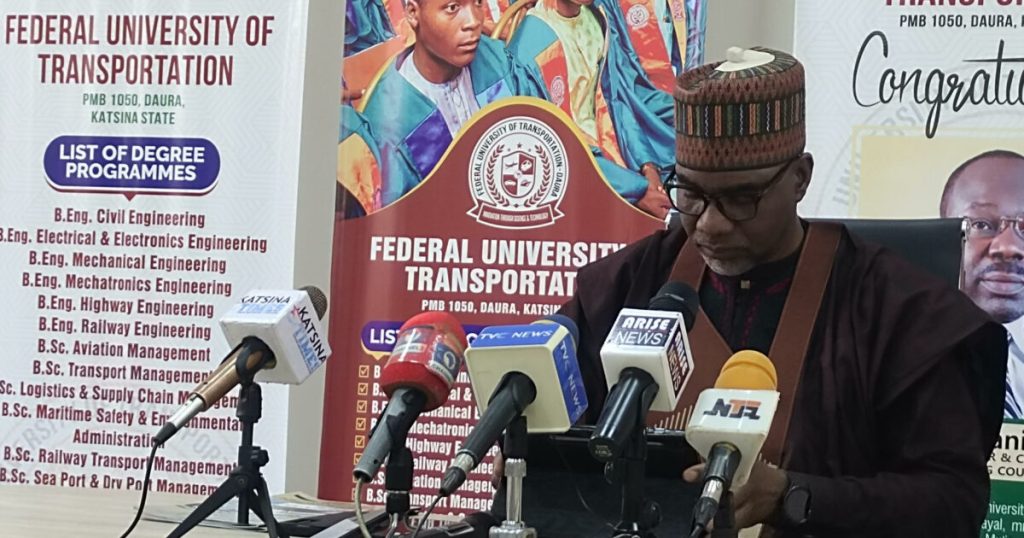The Federal University of Transportation, located in Daura, Katsina State, Nigeria, is charting an ambitious course to become a leading institution in transportation education and research. Central to this vision is a unique pedagogical approach that integrates theoretical learning with extensive practical training abroad. The university plans to send its students to countries renowned for their advanced transportation infrastructure and technology, such as China, Russia, and the United Kingdom, after they complete three years of foundational studies in Nigeria. This “3+2” model, inspired by a successful pilot program involving students from Ahmadu Bello University, Zaria, aims to provide students with hands-on experience and exposure to global best practices in various transportation disciplines. Many graduates of the pilot program now serve as faculty at the Federal University of Transportation, further strengthening the institution’s capacity to deliver high-quality education and training.
The university’s commitment to international collaboration extends beyond student exchange programs. Recognizing the importance of aligning its curriculum and research agenda with global standards, the institution has established partnerships with prominent international and local organizations, including key transport regulatory agencies. These collaborations offer opportunities for joint research projects, knowledge sharing, and access to cutting-edge technologies. Furthermore, the university’s eligibility for TETFund support, a significant funding source for tertiary education in Nigeria, will significantly bolster its infrastructural development and enhance its ability to attract and retain qualified academic staff. These investments will further solidify the university’s position as a center of excellence in transportation education.
In addition to its international collaborations, the Federal University of Transportation is embracing technological advancements to enhance the learning experience. The university plans to introduce smart classrooms, expand its virtual learning platforms, and integrate modern technology into its teaching methodologies. This focus on technology-driven education aims to prepare students for the rapidly evolving landscape of the transportation sector, characterized by increasing automation, digitalization, and the integration of smart technologies. Simultaneously, the university is prioritizing sustainability, incorporating solar-powered facilities and promoting a green campus environment. This commitment to sustainability aligns with global efforts to mitigate the environmental impact of transportation and promotes responsible resource management.
The Federal University of Transportation is also committed to expanding its academic portfolio to address emerging trends and challenges in the transportation industry. The university plans to introduce new programs in specialized areas such as transportation security, aviation technology, smart transport systems, and sustainable urban mobility. These additions aim to equip students with the specialized knowledge and skills required to address complex issues such as cybersecurity threats, the increasing demand for air travel, the integration of intelligent transportation systems, and the need for environmentally sustainable urban transportation solutions. Furthermore, the university intends to offer short courses and executive programs tailored to the needs of working professionals and executives in the transportation sector, providing opportunities for continuous professional development and knowledge updating.
Research and development are also key priorities for the Federal University of Transportation. The university plans to intensify its research efforts in cutting-edge areas such as autonomous vehicles and green logistics. These research endeavors are expected to contribute to the advancement of knowledge in these rapidly evolving fields and provide valuable insights for policymakers and industry practitioners. The university recognizes the importance of fostering a vibrant research environment and will actively seek further collaborations with industry partners and other research institutions to enhance its research capacity and impact. This focus on research and innovation will position the university as a key contributor to the development of sustainable and technologically advanced transportation solutions.
Despite its ambitious vision and strategic initiatives, the Federal University of Transportation faces significant challenges, particularly in the area of funding. As a relatively young institution, the university requires substantial financial resources to meet its operational and maintenance costs, expand its infrastructure, and attract and retain qualified faculty. Securing adequate funding will be crucial for the university to realize its full potential and achieve its ambitious goals. While the TETFund support provides a significant boost, the university acknowledges the need for additional funding sources to sustain its growth and development in the long term. Addressing these funding challenges will be critical for the university’s continued success and its ability to contribute meaningfully to the development of the transportation sector in Nigeria and beyond.














